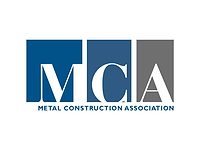Q&A with Isaiah Industries CEO Todd Miller

Isaiah Industries CEO Todd Miller.
Like the rest of the roofing industry, metal roofing took a hit when the COVID-19 pandemic caused workforce issues and economic instability, but like the product itself, it’s proving to be resilient and more critical than ever.
Todd Miller, Isaiah Industries CEO and publisher of the consumer website asktoddmiller.com, has worked with thousands of contractors worldwide in his nearly 40-year career. RC recently spoke with Miller to gain insights into how the Ohio-based metal roofing manufacturer and its contractors are handling the pandemic and its efforts to create components for hand-made face masks.
RC: How hard was Isaiah Industries hit by the pandemic?
Todd Miller: If I go back to March and April, business was off probably 30 to 35% of where it would normally be, but June and July have rebounded nicely. May was kind of a transition month, was better than March and April, but June and July are pretty much on par with where we normally are this year.
RC: What were some of the initial steps your company took when the pandemic hit?
TM: One of the things we recognized early on was, as a manufacturer, the inability to travel was going to limit our ability to connect with customers the way that we normally do. Of course, we’ve done the things that everyone else does — utilize video conferencing and telephones a lot — but one of the things we’ve also done almost daily is video updates that we post on all of our social media, including LinkedIn, and that’s been a neat way for us to connect with our customers and let them know we’re still here for them.
RC: How did Isaiah Industries step up to help provide PPE in its own unique way?
TM: We had right away started making metal nose strips for all the folks out there making face masks. This is basically a small metal strip that they insert in the mask that allows it to form over the nose bridge, make the masks fit better. We started doing those, and of course that was outside our industry, but it’s been pretty neat.
RC: How many nose strips has Isaiah Industries made?
TM: We’ve made and shipped about two-and-a-half million. At this point we are in the neighborhood of about 50,000 a week. We’ve actually had a few inquiries from people who are manufacturing masks in bulk, we’ve provided a few for that. We sent 100,000 nose strips no charge to Puerto Rico for an effort being headed up there by Telemundo NBC where they were basically getting a lot of (sewists) across the country together to make these masks to donate to hospitals.
RC: Has demand for the nose bands slowed down?
TM: Initially we were giving them away for free. We did that for a little over a month, but we were just getting overwhelmed. We were, at points, getting two to three orders per minute on the website, it was just unreal how crazy viral it went for a while. We ended up starting to charge for them, which kind of slowed things down a little bit, but also allowed us to be able to step up and do what we had to do to meet the demand out there.
Currently we can produce easily about 100,000 a day, so we’re really not at our capacity at this point. Who knows, maybe this will be our in-road to doing something more significant in the medical industry.
RC: As a company in the metal roofing industry, how would you say metal roofing is doing during the pandemic?
TM: We found that 2009 was a good year for us because so many people who had planned to build houses put those plans on hold or stopped them altogether and decided to upgrade where they’re at.
We really feel like that is happening right now also. We’re seeing the average size job is increasing, which is good ultimately, but it just shows that the higher-end clientele is pretty active out there, and I think a lot of new consumers are even looking for things they can do to help boost the economy, and typically with a higher-end residential metal roof, about 50% of their investment stays local with the contractor.
RC: What are you hearing from the contractors you work with?
TM: Right now everybody is busy and really reporting that sales are where they would’ve expected, or in some cases a little stronger than they would’ve expected. Back in the height of this, the real problem for them, of course, was homeowners did not want them to come to their home for presentations, so they all figured out ways to make sure that they were social distancing and sterilizing all their samples and making sure the consumer is protected. I’m really not hearing at this point that consumers are terribly nervous about that.
RC: So sales aren’t being affected, but what about labor?
TM: We’re still fighting that. That’s really what I’m hearing from most of the contractors right now. Most of our customers, they will sell as much as they’ve got crews to install, and that’s still their limiting factor.
RC: Any trends you’re seeing in the metal market?
TM: Everyone these days is talking about painting their house white and putting a black metal roof on it. Maybe that’s just become the design thing that everyone wants these days! I think what we’re seeing is those higher-end customers are just doing almost entire house makeovers.
RC: This year has also seen a very active storm season. What advice do you have for contractors?
TM: We’ve talked a lot to our contractors about just making sure that they’re staying in front of their customers — same as we’re doing with our video updates — just anything they can to do stay in front of their customers and let them know they’re still here and they’re in business.
RC: Any other advice you’d like to share with contractors?
TM: We’re really encouraging to make sure they’re taking temperatures and doing all the proper things that they possibly can do. They are working outside, so sometimes it’s easy to let your guard down, but sometimes you have guys riding in trucks together in close quarters, and they really need to be masked. We’re really just stressing to them the potential dangers if they did get the virus going through their work crews or their operation.
Looking for a reprint of this article?
From high-res PDFs to custom plaques, order your copy today!






